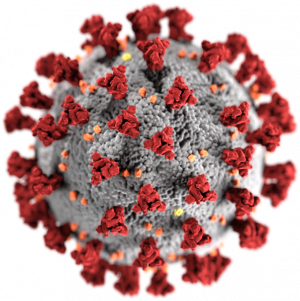Turkmenistan might be playing a shell game with human beings, according to a recent RFE/RL report.
On Wednesday, RFE/RL reported that authorities in Turkmenistan’s second-largest city, Turkmenabat, are transferring people held in a quarantine zone on the city’s outskirts to smaller provincial hospitals and a psychiatric clinic. The reported movement of 400 people held in the quarantine zone “follows media reports alleging that top authorities decided to temporarily transfer the sick from quarantine sites to hide coronavirus cases from a WHO team arriving in the country next week.”
If true, it’s a deeply cynical gambit.
Turkmenistan is one of a dwindling number of states that have not reported any cases of COVID-19, the disease caused by the novel coronavirus that emerged in late 2019 in China and has since spread around the world. At present, there have been more than 3 million cases confirmed around the world.
There have been over 100,000 cases of COVID-19 identified in Turkmenistan’s neighbors as of April 29 — Afghanistan (1,939), Uzbekistan (1,969), Kazakhstan (3,105), and Iran (93,657).
Nearby Tajikistan reports no cases, but rather a spike in pneumonia brought on by bad weather.
While Turkmenistan hasn’t banned the word “coronavirus,” as I noted earlier in April it sure hasn’t been using the term much. And while some large-scale celebrations have gone forward with large crowds, the state has taken some haphazard precautionary measures and warned of general “dangerous infectious diseases.”
Last week, Turkmen Foreign Minister Rashid Meredov definitively stated, “If there was a single confirmed coronavirus case, we would have immediately informed … the World Health Organization in line with our obligations.”
“We are not hiding anything,” he told a briefing that included UN officials on April 22.
Turkmen Healthcare Minister Nurmukhammed Amannepesov said the country had 30,000 test kits, with 40,000 more on order from Russia, Turkey, and Germany.
Amannepesov also reportedly said that 151 people were still in quarantine zones, mostly Turkmen citizens who worked as truck drivers and ship crews. After suspending freight traffic and closing its borders at the end of March, Ashgabat was reportedly preparing to re-open crossings with Iran according to a Reuters report.
As Eurasianet wrote in its Akhal-Teke bulletin yesterday, “it is difficult to shake the impression that the UN is spooked by Turkmenistan’s laidback attitude.” A call between President Gurbanguly Berdymuhamedov and UN Secretary-General Antonio Guterres on April 22 is worth taking note of, as was a subsequent meeting between the Turkmen foreign minister and representatives of various UN organizations in Ashgabat. It’s a lot of activity for a country with no problems.
As a WHO/Europe spokesperson told The Diplomat earlier this week, a mission team is scheduled to visit Central Asia soon. The timing depends on travel arrangements, not the easiest of things these days.
One has to wonder whether they’ll take at face value what the governments in Ashgabat and Dushanbe choose to show them. If Ashgabat shuffles the sick out of view, will the WHO believe it?































